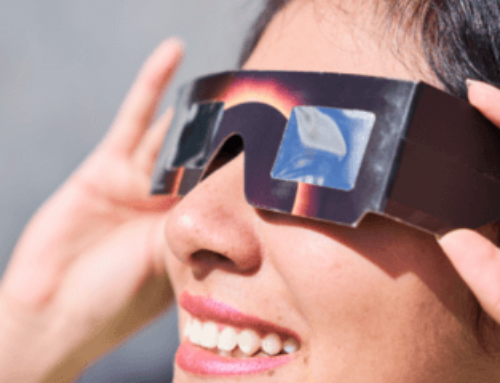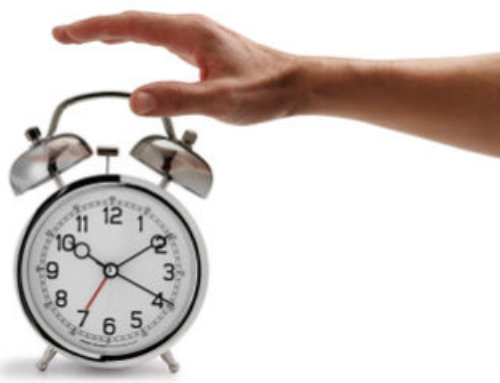June 22 observance will drive attention to symptoms and consequences of chronic insomnia
DARIEN, Ill. –The American Academy of Sleep Medicine and the Society of Behavioral Sleep Medicine are working to raise awareness of one of the most common sleep problems with Insomnia Awareness Night on June 22, 2021.
Nearly 60 percent of Americans have struggled with sleep during the pandemic. For some, ongoing restless nights have led to chronic insomnia, which involves difficulty falling or staying asleep or regularly waking up earlier than desired at least three times a week for at least three months.
“Getting adequate sleep can be difficult, especially in times of increased anxiety or stress, like those we have all experienced recently,” said Jennifer Martin, a licensed clinical psychologist who is president-elect of the AASM board of directors. “Healthy sleep is vital to a healthy life, so chronic insomnia disorder should be addressed before it causes other health issues.”
Symptoms associated with chronic insomnia include daytime fatigue or sleepiness; feeling dissatisfied with sleep; having trouble concentrating; feeling depressed, anxious or irritable; or having low motivation or low energy. It is more common in women than in men.
Chronic insomnia is associated with increased risk of a range of physical and mental health problems. Research suggests chronic insomnia can lead to increased risks of depression, anxiety, substance abuse and motor vehicle accidents. A recent study shows that difficulty falling asleep is associated with cognitive impairment later in life, and another study found that people who have insomnia are 28% more likely to develop Type 2 diabetes than those without.
Chronic insomnia also has a negative impact on work and school performance, impairing concentration and increasing the risk of errors and accidents. Research has estimated that insomnia is associated with nearly 253 million days of lost work each year in the U.S. and more than $100 billion in annual costs due to indirect costs such as poorer workplace performance, increased health care utilization and increased accident risk.
“While the effects of insomnia can impact nearly every aspect of your life, practicing healthy sleep habits can help mild or short-term cases of insomnia,” said Martin. “If symptoms cause daytime problems and inhibit your quality of life, it’s time to get support from a health care professional.”
The most effective treatment for chronic insomnia is cognitive behavioral therapy for insomnia (CBT-I), which combines behavioral strategies, such as setting a consistent sleep schedule and getting out of bed when you are struggling to sleep, with cognitive strategies, such as replacing fears about sleeplessness with more helpful expectations. CBT-I recommendations are customized to address each patient’s individual needs and symptoms. While six to eight sessions are typical, some patients improve more quickly.
“Cognitive behavioral therapy and related approaches are available to target chronic insomnia in individuals of all ages – children, teens, and adults,” said Christina McCrae, a licensed clinical psychologist who is president of the SBSM. “When chronic insomnia occurs in the context of other disorders, it may also help to address the symptoms of conditions such as depression or pain.”
Insomnia Awareness Night Activities
Those who would like to connect for information and advice about chronic insomnia should join the conversation on Tuesday, June 22:
- Twitter Chat hosted by the SBSM using #InsomniaNight: 6-7 p.m. EDT
- Reddit Ask Me Anything hosted by the AASM: 11p.m. – Midnight EDT
###
About Insomnia Awareness Night
Since 2014, Insomnia Awareness Day, and now, Insomnia Awareness Night, has been held nationally to provide education and support for those living with chronic insomnia. Learn more at: https://sleepeducation.org/get-involved/campaigns/insomnia-awareness-night/.
About the American Academy of Sleep Medicine
Established in 1975, the American Academy of Sleep Medicine (AASM) is advancing sleep care and enhancing sleep health to improve lives. The AASM has a combined membership of 11,000 accredited member sleep centers and individual members, including physicians, scientists and other health care professionals (https://aasm.org/).
About the Society of Behavioral Sleep Medicine
The Society of Behavioral Sleep Medicine (SBSM) is an interdisciplinary organization committed to advancing the scientific approach to studying the behavioral, psychological and physiological dimensions of sleep and sleep disorders and the application of this knowledge to the betterment of individuals and societies worldwide (https://www.behavioralsleep.org/).









